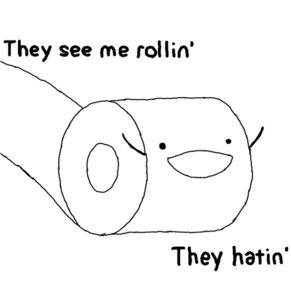11975771
Macromolecules and Polymers
Beschreibung
Keine Merkmale angegeben
Zusammenfassung der Ressource
| Frage | Antworten |
| What are macromolecules? | Macromolecules are complex molecules with a relatively large molecular mass E.g. proteins, some carbohydrates and lipids |
| What are polymers? | Large, complex molecules composed of long chains of monomers joined together E.g. most carbohydrates and all proteins Polymers are a group of macromolecules |
| What are monomers? | Monomers are small, basic molecular units (e.g. monosaccharides and amino acids) |
| What is a condensation reaction? | A condensation reaction forms a glycosidic bond between monomers, releasing a molecule of water |
| What is a hydrolysis reaction? | A hydrolysis reaction breaks the glycosidic bond between monomers using a water molecule. It is the opposite of a condensation reaction |
| What elements make up carbohydrates? | C H O |
| What elements make up lipids? | C H O |
| What elements make up proteins? | C H O N S |
| What elements make up nucleic acids? | C H O N P |
| What are anions? | Negatively charged ions |
| What are cations? | Positively charged ions |
| What are the uses of phosphates? | Vital for the formation of ATP, nucleic acids etc. Build and repair bones |
| What are the uses of hydrogencarbonate? | Vital to pH buffering system Regulates pH in small intestine |
| What are the uses of nitrates? | Source of nitrogen for amino acids, proteins, nucleic acids, ATP and some hormones |
| What are the uses of chlorides? | Important for osmotic properties of cell membrane Needed for CO2 transport in blood |
| What are the uses of sodium? | Maintains electrical and osmotic balance Vital for active transport mechanisms |
| What are the uses of hydrogen? | Energy production Found in water |
| What are the uses of calcium? | Keeps bones and teeth strong Important for muscle contraction and blood clotting |
| What are the uses of potassium? | Protein synthesis and respiration Nerve impulse transmission and other active transport systems |
0 Kommentare
There are no comments, be the first and leave one below:
Möchten Sie mit GoConqr kostenlos Ihre eigenen Karteikarten erstellen? Mehr erfahren.


